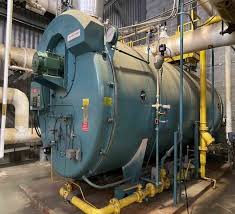Exploring the Benefits and Efficiency of Coal-Fueled Hot Water Boiler Systems for Heating Solutions
Understanding Coal Hot Water Boilers Efficiency and Applications
Coal hot water boilers have been a significant part of industrial and residential heating systems for many years. Despite the growing focus on renewable energy sources, coal remains a prevalent option due to its accessibility and cost-effectiveness. These boilers utilize the combustion of coal to produce hot water, which can then be distributed throughout a building for heating purposes or used in various industrial processes.
The Working Mechanism
The basic working principle of a coal hot water boiler involves burning crushed coal in a furnace. The combustion process generates heat, which is transferred to water circulated in pipes. The boiler consists of several key components, including the furnace, heat exchanger, and water circulation system. As coal burns, it releases thermal energy that raises the temperature of the water, creating hot water that can reach temperatures between 80 to 90 degrees Celsius (176 to 194 degrees Fahrenheit).
Types of Coal Hot Water Boilers
There are several types of coal hot water boilers, each designed to suit different applications. The two most common designs are stoker-fired and fluidized bed boilers.
1. Stoker-Fired Boilers These systems utilize mechanical stoker systems to feed coal into the furnace. They are efficient for burning larger sizes of coal and can be tailored to maintain a consistent combustion rate, ensuring stable heat output.
2. Fluidized Bed Boilers In these systems, coal is burned in a bed of hot sand or ash, which allows for more uniform combustion and a higher degree of efficiency. The fluidization process enhances the mixing of coal particles, ensuring that all fuel is consumed more completely, resulting in reduced emissions of pollutants.
coal hot water boiler

Benefits of Coal Hot Water Boilers
One of the primary advantages of coal hot water boilers is their efficiency in converting fuel into energy. High-efficiency models can achieve thermal efficiencies of over 85%, making them a cost-effective heating solution for large facilities. Additionally, coal is often less expensive than other fossil fuels, such as natural gas and oil, especially in regions where coal mining is prevalent.
Furthermore, coal boilers are capable of providing a steady, reliable heat output, making them particularly suitable for industries that require dependable heating solutions. Applications can range from central heating systems in residential buildings to large-scale heating solutions for industrial factories.
Environmental Considerations
Despite their benefits, coal hot water boilers also present environmental challenges. The combustion of coal releases pollutants such as sulfur dioxide (SO2), nitrogen oxides (NOx), and particulate matter, contributing to air quality issues. Therefore, modern coal boiler designs often incorporate advanced emission control technologies, including electrostatic precipitators and flue gas desulfurization systems, to minimize environmental impacts.
Conclusion
In conclusion, coal hot water boilers continue to play a vital role in heating systems across various sectors. With their ability to deliver efficient and reliable heating, they serve as a significant option in regions rich in coal resources. However, the balance between economic benefits and environmental responsibilities remains crucial. As industries evolve and regulatory standards become stricter, the future of coal hot water boilers may hinge on advancements in emissions control technology and the search for cleaner fuel alternatives. As such, while they remain an integral part of the energy landscape today, ongoing innovation and adjustment to environmental standards will define their role in the coming years.
-
Electric Steam Boiler Manufacturers: Efficient Industrial SolutionsNewsAug.15,2025
-
Leading Electric Steam Boiler Manufacturers for IndustryNewsAug.14,2025
-
Buy Waste Heat Boilers: Custom, Efficient & Affordable SolutionsNewsAug.13,2025
-
Electric Steam Boiler Manufacturers | Industrial Power & EfficiencyNewsAug.12,2025
-
Electric Steam Boiler Manufacturers: Efficient & Reliable SolutionsNewsAug.11,2025
-
China Steam Boiler Price: Efficient Industrial Systems & BurnersNewsAug.10,2025

